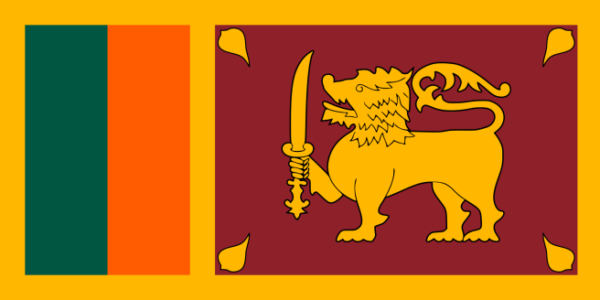Sri Lanka’s Recovery – By Dr Tilak S Fernando

 Sri Lanka was in a severe economic catastrophe before the IMF came to a rescue with $2.5 billion. President endeavoured to clear the fuel station queues and people lining up at gas stations for petrol & kerosine. Unfortunately, the opposition parties did not assist the Ranil Wickremasinghe Government. However, credit should go to President Ranil Wickremasinghe for evading a complete collapse of the economy. IMF loan is not a happy occasion to celebrate with a “kiri bath” (a traditional Sri Lankan dish made from rice and Coconut) and crackers. At least, Sri Lankans should treat this as a life-saving move for the country as it serves as a breathing space for Sri Lanka.
Sri Lanka was in a severe economic catastrophe before the IMF came to a rescue with $2.5 billion. President endeavoured to clear the fuel station queues and people lining up at gas stations for petrol & kerosine. Unfortunately, the opposition parties did not assist the Ranil Wickremasinghe Government. However, credit should go to President Ranil Wickremasinghe for evading a complete collapse of the economy. IMF loan is not a happy occasion to celebrate with a “kiri bath” (a traditional Sri Lankan dish made from rice and Coconut) and crackers. At least, Sri Lankans should treat this as a life-saving move for the country as it serves as a breathing space for Sri Lanka.
Bankruptcy
Sri Lanka failed to pay the overseas commitments in April 2023, and the nation was declared bankrupt. This was significantly due to reduced expatriate income from $437 million to $ 259 in the past few months. It was due to policies adopted by the previous governments for the last seventy-five years and Covid -19, and the complete recession in the world economy. Also, some main political parties openly suggested not sending expatriate workers money through the Central Bank. Some expatriates decided to send their money via informal channels such as “Undiayal” to obtain a higher rate for their foreign exchange. Although the Central Bank imposed restrictions on foreign remittances, other banks followed suit.TV advertisements often state to send foreign remittances through a bank.
Authorities were concerned with declining exports, such as textile, rubber, and tea. At present, everyone hopes that exports will increase in due course. Tourism has been the dollar earner. The Tourist Board expects 1.55 million tourists in 2023, with a targeted income of US$5 billion. Protestors blocking roads through various marches have caused tourism to deplete. The tourist arrivals in 2018 were the highest on record so far. To improve the influx of tourism, the Tourist Board has an enormous task in attracting international and local tourists to woo them to different types of hotels rather than helping hotels that have suffered during the past two years. Hotels should cater for all tourists without exhibiting a colonial attitude toward foreign and domestic tourists. The management hotel staff should be responsible for management to see that it is functional.
How to enhance Tourism.
The Immigration & Emigration Department should set up a help desk to answer any questions on entry visas and passports to eradicate tourists’ time, thereby minimising their valuable time in wasting time in long queues at Immigration offices. If there is an embarkation tax for tourists and Sri Lankans living overseas should be abolished.
Liquor such as local Gin and many brands of wine should be available “duty-free” in wine shops and supermarkets for passengers coming into the country and leaving. Duty-free outlets should have a good selection of wine, foreign liquor, and many brands of cigarettes available for tourists. It should be the responsibility of each outlet to ensure that Sri Lankans abroad and Asians from other countries qualify for such resolves by requesting them to bring their passports with the date of arrival.
All levels of services at airports need improvement. Airports should have ‘a para-medics team. Most of the ‘tuk-tuk’ drivers are a pest to tourists; not only do they pose a danger in transporting tourists, but checking whether they have passenger cover with an insurance company is essential.
Beggars should be removed from tourist areas. English-speaking courteous guides and especially trained police officers must be deployed to feel safe for tourists. All ditches and drains need to be cleaned and in good repair. Private beaches should be a must to avoid peeping toms and thieves.
Equally, bus drivers speeding at high speed and overtaking may help the wind of the buses sufficiently to knock someone down in areas of Unawatuna and Hikkaduwa, where there are no pavements for tourists to walk on. Recently tourists were fed up with coercion. They toured everywhere in Sri Lanka and faced bribery and corruption everywhere. Some tourists photographed anglers sitting on a pole and fishing in the seas as souvenirs from Sri Lanka. After taking such photographs, tourists were harassed by the locals demanding money for taking pictures.
Free-thinkers
Pro-government and unbiased individuals think that IMF acceptance will help Sri Lanka with external debts and improve the country tremendously. One of the major clauses of the IMF agreement stands to reason by eradicating corruption which is common everywhere in the country, including the tourist industry. “New anti-corruption laws proposed by the Independent Prosecution Office of the Presidential Secretariat will boost investor confidence,” said Dr Harsha de Silva of Samagi Balwegeya. The opposition parties have always been fussy, saying, “Ranil Wickremasinghe favours the Rajapaksa family. Introducing the New anti-corruption bill in the parliament as a legal document will be able to gash such gossip. Implementing the best anti-corruption Law is best in Asia. The Law is hoped to boost foreign investors and the Sri Lankan government’s confidence.
All parliamentarians and non-elected members of political party members should refrain from immoral and dishonest collaborators with public money. They should come together for the country’s sake and refrain from interrupting the overall economy in the future.
All previous governments for seventy-five years have given the general public everything free of charge, such as education, once rice and essentially everything free, which caused the previous governments to borrow from international agencies largely, which has caused the present economic chaos!
Therefore, to bring the economy back to a safe level, it is practicable to have an economic policy as suggested by the current President. IMF funds of $2.9 billion over four stages need to be improved to pay off the government’s commitments to international agencies, from which the Sri Lankan government had to borrow on various projects to resurrect the economy. Meanwhile, the Sri Lanka government should concentrate on external funds such as exports, tourism and remittances from expatriate workers. It is vitally important to compromise with professional trade unions and not aggravate the situation.
Tilak S Fernando







